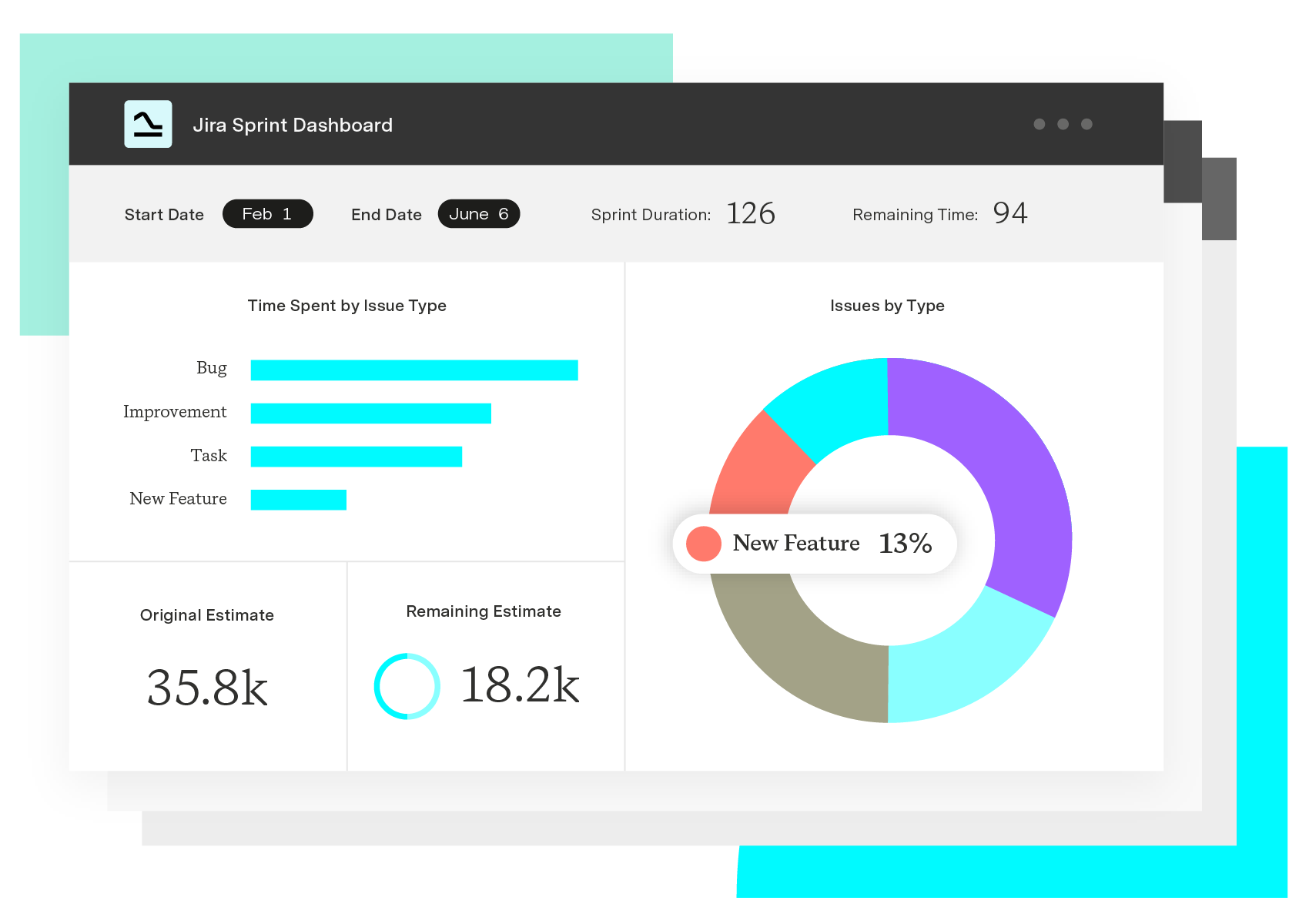5 Scrum values in the workplace
Tempo Team
Scrum values are the foundation of successful agile teams. These values help build an environment where trust grows, accountability is shared, and teams collaborate with confidence. Whether you're working in a single department or scaling the approach across your organization with a model like Scrum at Scale, teams that internalize Scrum values make better decisions and sustain high performance over time.
This guide defines what Scrum values are and explores how they underpin effective agile strategies. Additionally, we’ll highlight practical ways teams can embody these values daily and how tools like Tempo support teams in aligning with Scrum principles for continuous improvement.
The 5 Scrum values
The Scrum guide identifies five core values that are essential for building an effective team. These values guide how individuals work and how the team collectively navigates sprints, reviews, and retrospectives within a Scrum framework.
1. Commitment
Commitment in Scrum means team members are dedicated to achieving sprint goals and supporting each other. The focus isn't just on individual tasks but a shared commitment to the team's success and the overall product goal. It involves committing to delivering value and continuously improving.
2. Courage
Courage is about persevering in the face of fear when working on challenging problems. This includes the will to speak up when things are going wrong and the ability to experiment with new approaches.
Courageous team members create an environment where employees feel safe to be transparent and take risks. This value is also essential for Scrum masters, who remove project impediments and ensure that the framework is followed effectively.
3. Focus
Focus helps teams maintain a clear vision of what needs to be accomplished. Scrum teams must remain focused on the current sprint and the overall product goal – and a Scrum master will do whatever they can to limit distractions and roadblocks.
4. Openness
Openness means that Scrum teams and their stakeholders agree to be transparent about all challenges encountered when working. This includes positive and negative elements: progress, impediments, successes, and failures. The trust gained from this high level of openness enables faster problem-solving and adaptation.
5. Respect
Respect in Scrum means that people respect each other as capable, independent individuals. It involves making room for diverse opinions, experiences, and working styles. This value is crucial for building a cohesive and supportive team environment where everyone feels valued and can contribute their best.
The importance of Scrum values in the workplace
Scrum values do more than drive project success – they also help shape organizational culture. When companies embrace these values, they create an environment that supports collaboration and long-term adaptability.
Teams that operate with commitment and courage are more likely to innovate and take ownership of results. Focus helps avoid burnout by clarifying priorities. Openness promotes collaboration, while respect keeps teams healthy and productive.
These advantages extend beyond Scrum teams and influence how entire departments operate. Scrum values also play a major role in aligning individual behavior with company-wide strategy frameworks that drive long-term impact. If the entire company embraces the same organizational philosophy, cross-department synchronization becomes much more fluid.
Benefits of using scrum values
Scrum teams experience wide-ranging benefits, like:
Improved collaboration: Shared values reduce friction and strengthen teamwork.
Increased trust: Transparency and openness make it easier for team members to rely on one another.
Higher morale: Teams feel supported and empowered, boosting engagement.
Better conflict resolution: Respect and courage lead to constructive disagreements.
Effective delivery of value: Commitment and focus keep teams aligned and productive.
When teams internalize these values, they’re better equipped to excel in their assigned tasks and embrace frameworks integral to company success.
Embodying Scrum values in daily work
To benefit from Scrum values, teams must practice them daily. Here are some practical routines to follow:
Begin daily stand-ups by encouraging honest updates and highlighting blockers.
Celebrate small wins and recognize individuals who go above and beyond.
Set achievable sprint goals that reflect team commitment and track progress openly.
Create space for retrospective discussions where team members can reflect without fear of blame.
Encourage feedback across roles and hierarchies to build trust and reinforce mutual respect.
Additionally, an implementation plan that incorporates Scrum encourages your team to perform optimally while planning for the next stage of your project.
Scrum values and Scrum principles: Key differences
Although closely related, Scrum values and Scrum principles serve distinct purposes:
Scrum values are cultural. They shape team behavior, interpersonal dynamics, and workplace mindsets. Examples include respect and courage.
Scrum principles are procedural. They outline how Scrum teams plan, execute, and inspect their work. Examples include empirical process control and timeblocking.
Understanding both Scrum values and principles is crucial for teams that want to excel. While Scrum values guide culture and mindset, Scrum principles provide the structure for events such as sprint reviews and backlog refinements, helping teams continuously improve.
Embrace agile culture with Tempo
While Scrum values are a powerful organizational framework, they need support from the right tools. Tempo’s suite of Jira-native software enhances agile principles and practices by embedding transparency, visibility, and accountability into daily work.
With Custom Charts, teams can view real-time progress, identify blockers, and keep goals front and center. Timesheets allows teams to track effort spent on tasks, making balancing workloads easier and supporting continuous improvement. And planning software like Capacity Planner gives teams the foresight to allocate resources effectively, stay focused on commitments, and respond quickly to changes.
With better planning and time-tracking capabilities, Tempo’s tools help teams stay organized and aligned with Scrum values.













































